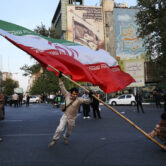CHICAGO (CN) — The Romanovs. The Qing. The Bushes. No dynasty lasts forever, and in Chicago a string of recent federal court cases involving members of the city's most prominent white political families — like the Daleys, Cullertons and Burkes - indicate these once-mighty clans may be nearing the end of their reigns too.
It hasn't been a sudden, cathartic collapse; with the exception of the internal Democratic purge that saw former Illinois Governor Rod Blagojevich sent to prison, there's been no revolution to sweep them from power. Instead these families' falls have been decades in the making — the result of shifting demographics and economic realities more than active political will to remove them.
But even crumbling columns sometimes need a push to fall, and in recent months that push has come from the federal government. Last week Patrick Daley Thompson, former Chicago City Council member and nephew and grandson of Chicago's two longest-serving mayors, was found guilty on several counts of federal tax fraud.
Ed Burke, another City Council member whose father represented the same city ward he now does, is currently under federal investigation on 14 counts of bribery and extortion. And just this past Wednesday, former Illinois state senator Tom Cullerton, whose family has been part of Chicago-area politics since the Great Chicago Fire, pleaded guilty to federal embezzlement charges for pinching more than a quarter million dollars from a suburban local of the International Brotherhood of Teamsters.
He was forced to resign his Senate seat.
Dick Simpson, a professor of political science at University of Illinois at Chicago and former City Council member himself, said these developments augur the slow dissolution of the Chicago Machine — the white Democratic patronage network which has helped shape Chicagoland politics for more than a century.
"The Keane Dynasty is gone, the Mell dynasty, including Blagojevich is gone," Simpson said. "I don't think the Cullertons have anyone left either."
The Chicago Machine grinding to a halt has far-reaching political implications for Chicago's working class and labor sector, and the timing of Cullerton's guilty plea coincides with significant changes in international union politics.
The court first accused Cullerton in 2019 of squatting on Teamsters Joint Council 25's payroll despite not actually doing any work for them, eventually racking up over $250,000. He was one of several Illinois lawmakers caught up in a sweeping anti-corruption investigation launched by attorney John Lausch's office; the same investigation implicated three other state legislators in energy company Commonwealth Edison's admitted yearslong bribery scheme in the Illinois Capitol building.
Cullerton pleaded not guilty when he first went before a federal judge that year, and held on to that plea throughout 2021. But at the same time, the Teamsters were having a dynastic collapse of their own.
In November 2021, a slate known as Teamsters United won several important elections in the international union's leadership, ousting the faction that had been in power since the latter days of Jimmy Hoffa. The new leadership, exemplified by General President-elect Sean O'Brien and General Secretary Treasurer-elect Fred Zuckerman, have said they plan to take a harder stance against employers compared to their predecessors.
No contacted Teamster local or slate responded to requests for comment, but labor historian and sociology professor Barry Eidlin of Quebec's McGill University, also a longtime Teamsters watcher, said the change bodes poorly for scions of the old guard like Cullerton.
"If there was one word to describe Teamsters United, the one word is 'militancy,'" Eidlin said. "Sean O'Brien was talking about taking a much harder line against employers... part of that more militant approach is a less corrupt approach."
Simpson too said he thought that "unions are taking a more hard approach to corruption." In the coming years, both professors said, the collaborative relationship between union leadership and employers that has defined labor relations for decades may be coming to an end — alongside the political blocs that benefitted from that relationship.









